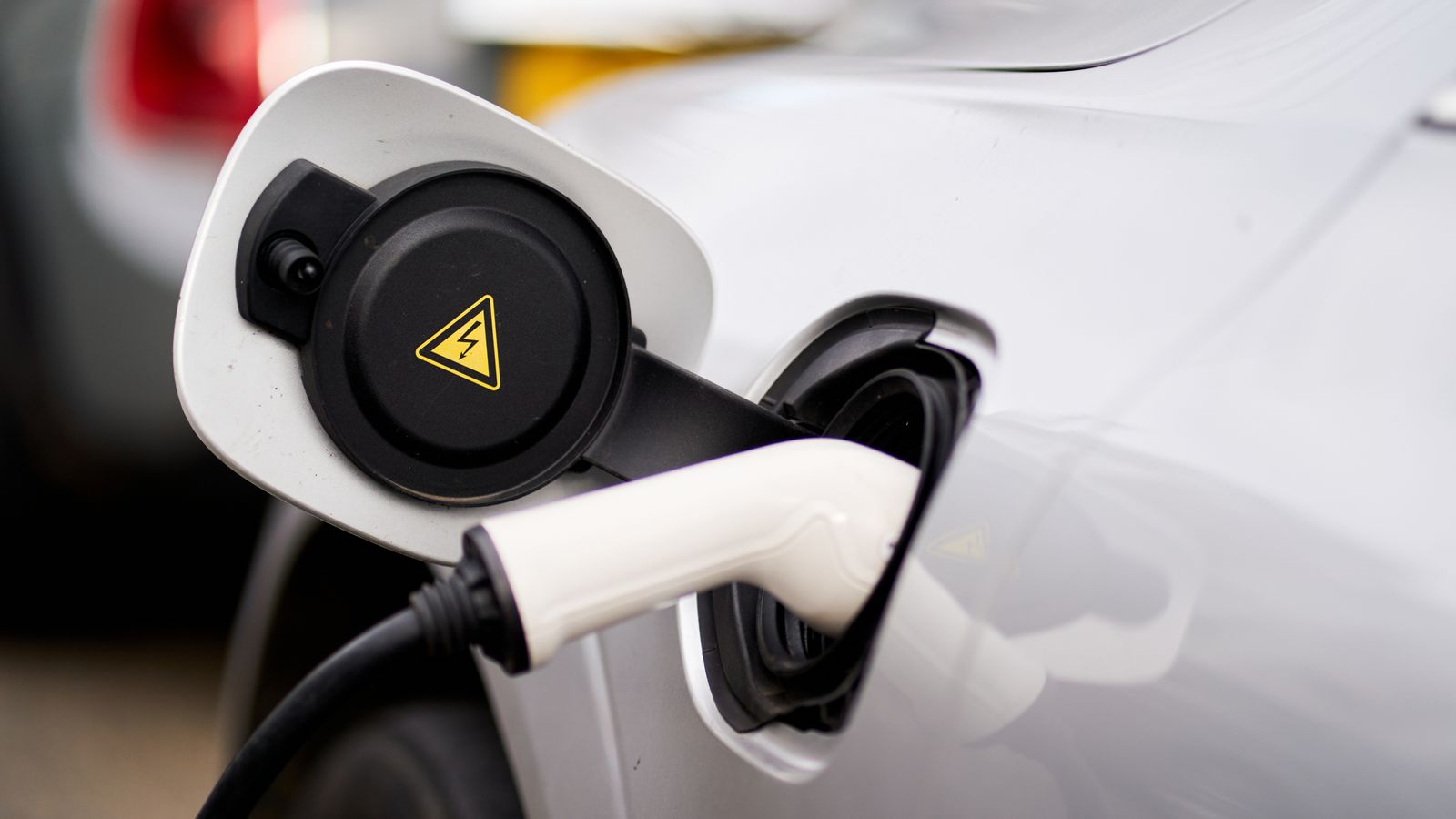The energy price crisis is “a worry” for Britain’s car sector as it looks to attract companies to build batteries and electric vehicles in the future, the industry’s trade body has warned.
Mike Hawes, chief executive of the Society of Motor Manufacturers and Traders (SMMT) said the volatility – though similar to that seen elsewhere – was sending the wrong message to investors.
He spoke as Sky News revealed that Ford was nearing a decision on whether to build a new electric transmission system at its Halewood plant on Merseyside.
Car makers were likely to be hedged against short-term energy price spikes for now but costs could rise over coming months if prices remain elevated.
It adds to the main headache for the industry at the moment – the global shortage of semiconductor chips, a problem that is likely to stretch into next year and has already severely dented production.
Pandemic-related shutdowns at dozens of plants in countries such as Vietnam, Taiwan, and Malaysia where the chips are produced are choking off supply.
It is resulting in temporary car factory stoppages and knock-on effects for small firms in the UK that supply those factories with other parts.
Motorists urged by Number 10 to ‘shop for fuel as usual’ as BP shuts some petrol stations
Iceland boss pleads for shoppers not to panic buy ahead of Christmas
Energy crisis, labour shortages and supply chain issues hitting the UK – here’s what we’re short of and the industries under threat
Car workers are often still being paid during those stoppages under a mechanism called “time banking” that allows employers to claw back more hours from them during future periods – though Mr Hawes said that flexibility was “close to being exhausted”.
The SMMT reckons that the chip shortage will result in 100,000 fewer vehicles being produced.
Vauxhall this week revealed that it was planning a temporary shift reduction at its plant in Luton, caused by the shortage, which will affect more than 200 jobs.
The energy price crisis does not represent such an immediate headache but adds to other challenges in the UK including Brexit costs, business rates and skills shortages.
Mr Hawes admitted: “It’s a worry.”
That is partly because, the industry body says, energy prices for the sector are already higher in Britain than they are in other countries.
Car manufacturers are heavy users of energy but do not benefit from discounts given to “intensive” industries such as the steel sector.
“This price volatility doesn’t send the right sort of message to investors,” Mr Hawes said.
“I know it’s not just the UK, but it does seem to be particularly severe, or extreme, fluctuations.
“If you’re looking at two places to invest and you’re looking at all of your costs and you’re aware of price volatility it doesn’t help when the background is already high energy costs.”
Mr Hawes also pointed to the potential impact on consumers who the industry needs to convince to buy more electric vehicles but might now be worried about higher costs when weighing the price of charging cars against that of petrol.






















